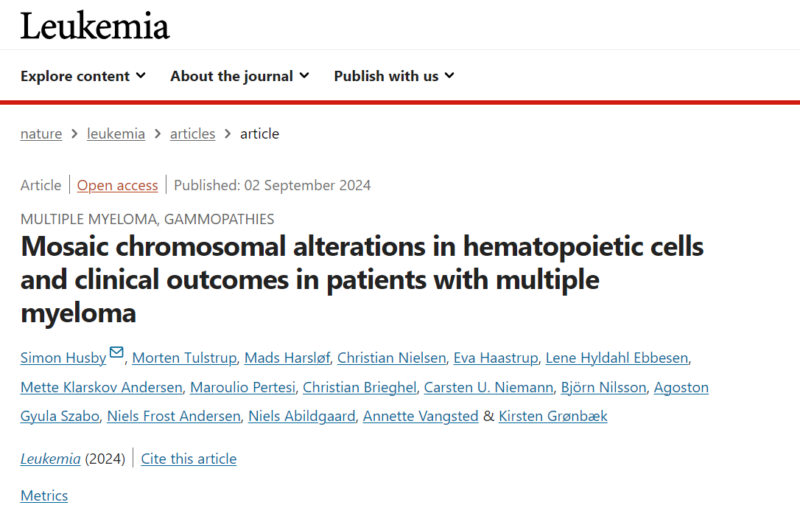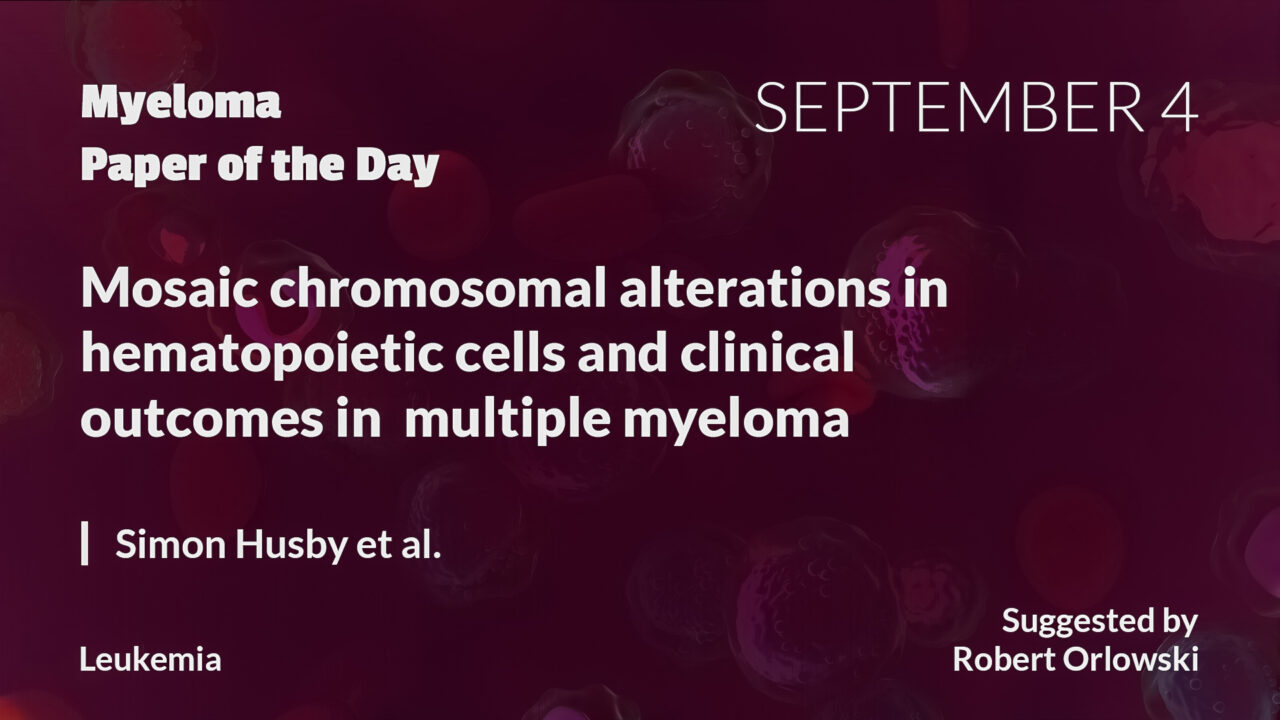Robert Orlowski shared on X:
“Myeloma Paper of the Day: Mosaic chromosomal alterations in stem cell harvest product have no impact on outcomes in male patients getting ASCT, but female patients with X loss had longer OS, and multiple myeloma clones negatively impacted outcomes.”
Source:Robert Orlowski/X
Authors: Simon Husby, Morten Tulstrup, Mads Harsløf, Christian Nielsen, Eva Haastrup, Lene Hyldahl Ebbesen, Mette Klarskov Andersen, Maroulio Pertesi, Christian Brieghel, Carsten U. Niemann, Björn Nilsson, Agoston Gyula Szabo, Niels Frost Andersen, Niels Abildgaard, Annette Vangsted and Kirsten Grønbæk.

Other posts featuring Robert Orlowski on OncoDaily.
Robert Orlowski, M.D., Ph.D., holds multiple positions at The University of Texas MD Anderson Cancer Center, including Chairman, Ad Interim Director of Myeloma, and Professor of Medicine in the Departments of Lymphoma/Myeloma and Experimental Therapeutics within the Division of Cancer Medicine. Additionally, he chairs the SWOG Barlogie/Salmon Myeloma Committee, which is part of the National Clinical Trials Network, dedicated to advancing new therapies and understanding the biology of myeloma.
Dr. Orlowski’s expertise lies in both clinical practice and scientific research, with a particular focus on translating laboratory discoveries into effective treatments for patients. He investigates drug resistance mechanisms in myeloma and seeks to identify predictive biomarkers for treatment response. Notably, his past contributions include leadership roles in developing proteasome inhibitors like bortezomib and carfilzomib, as well as monoclonal antibodies such as daratumumab and elotuzumab.


